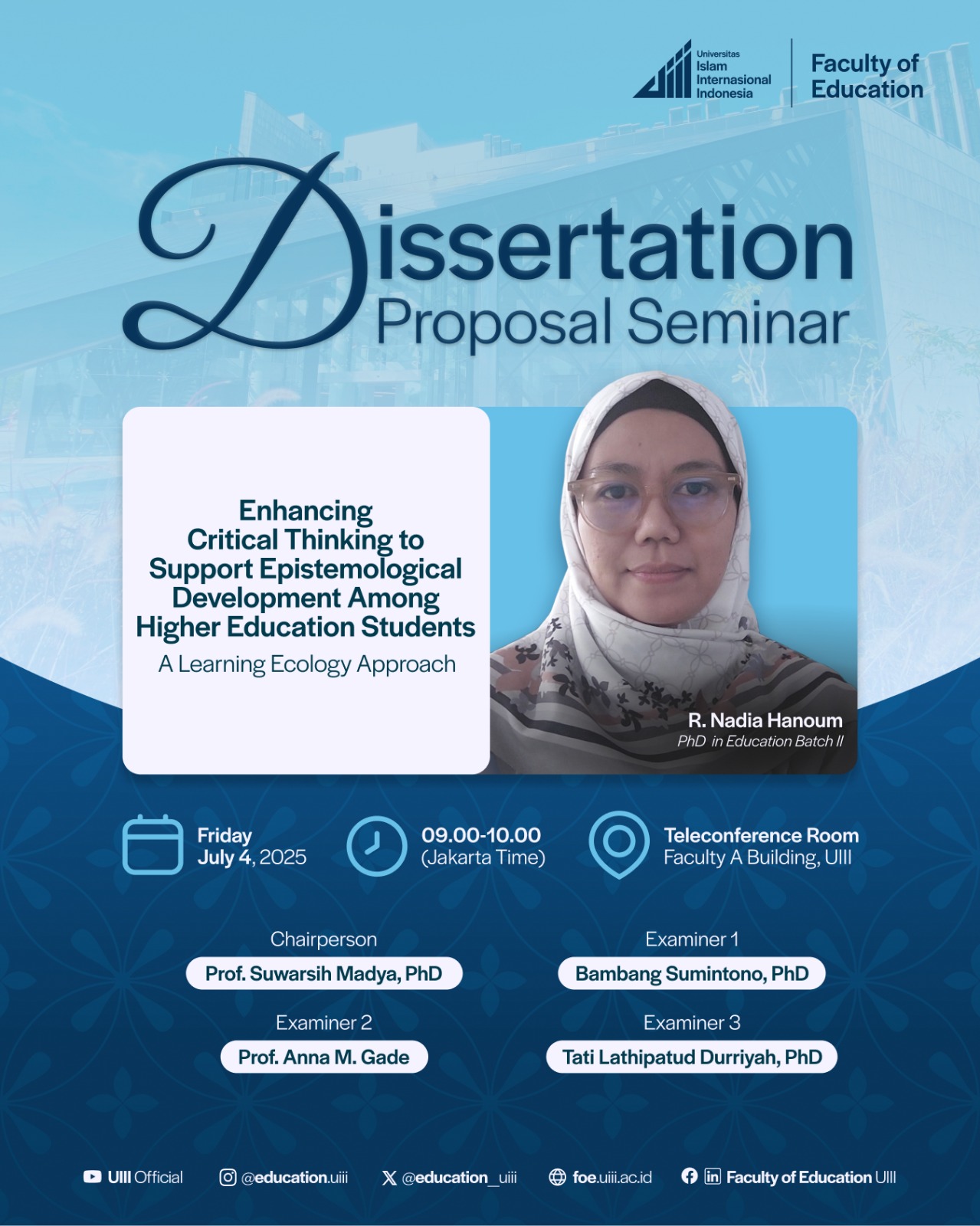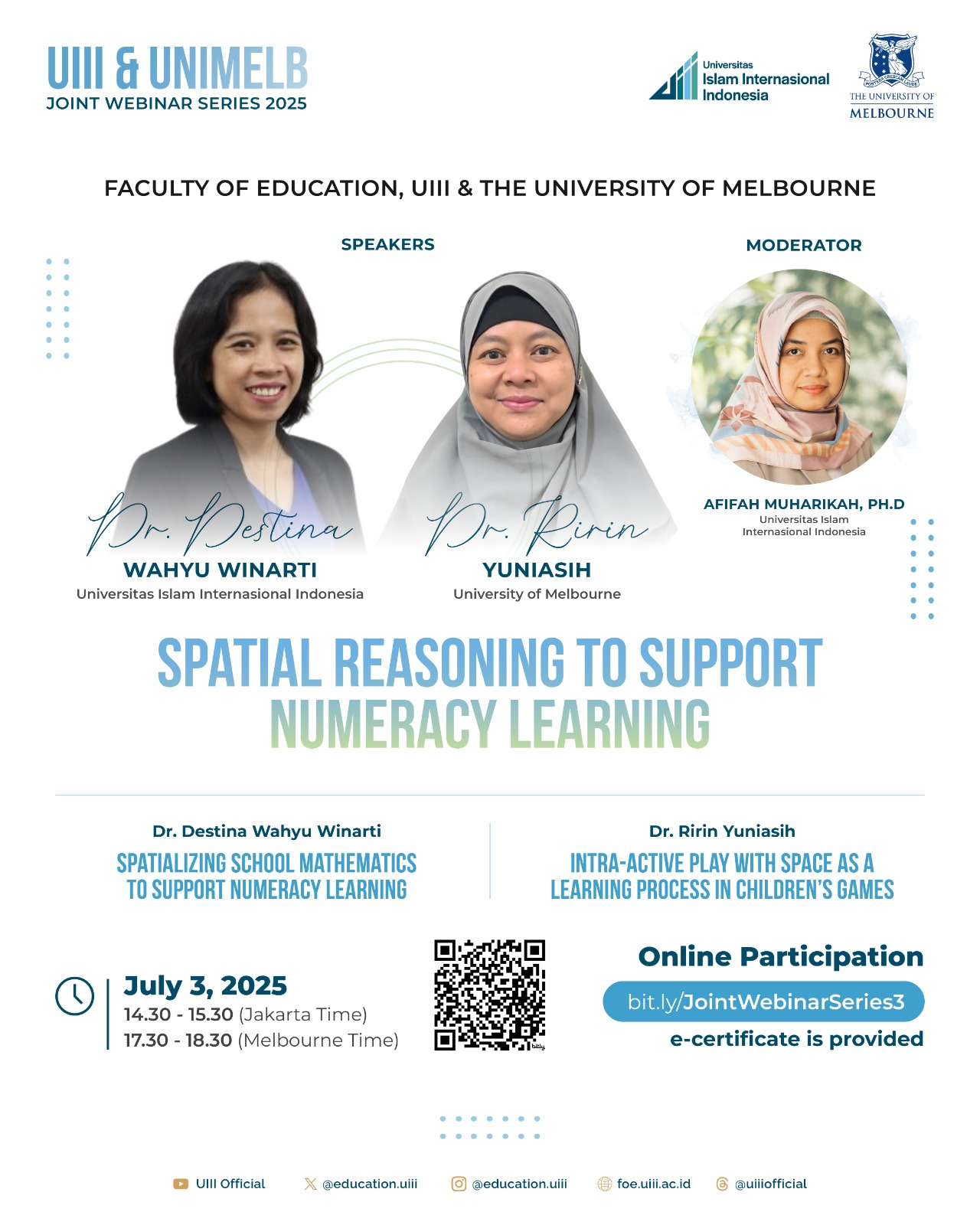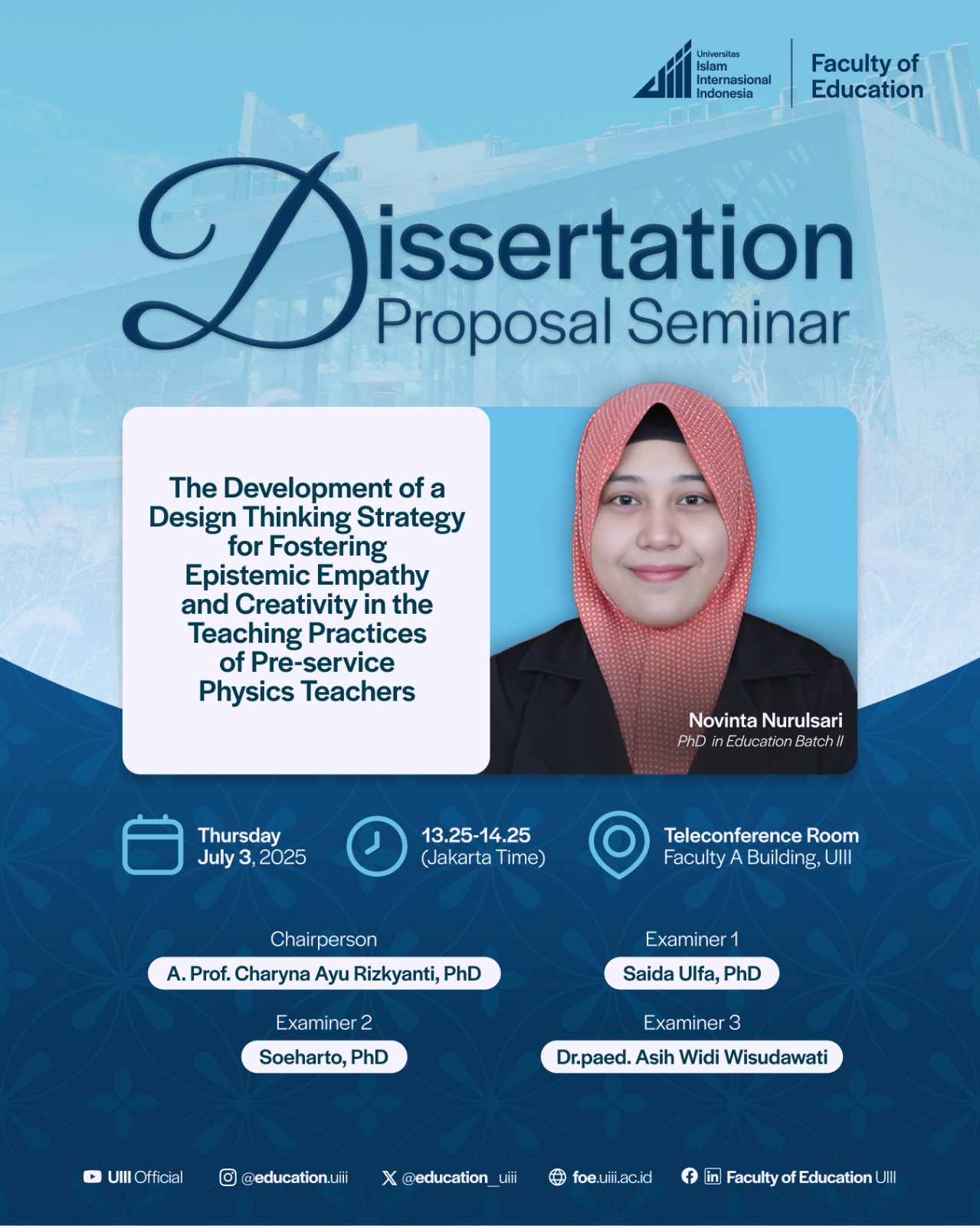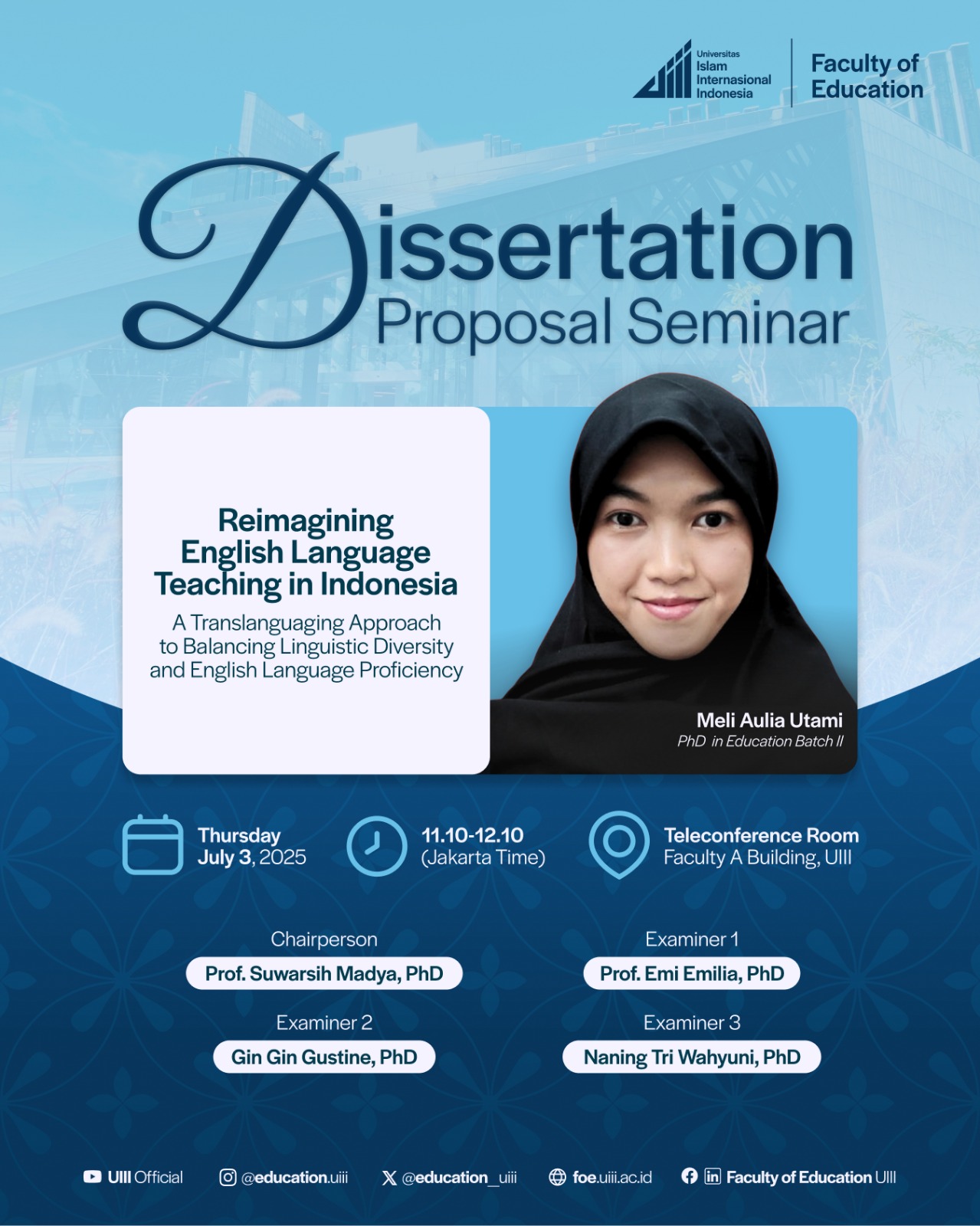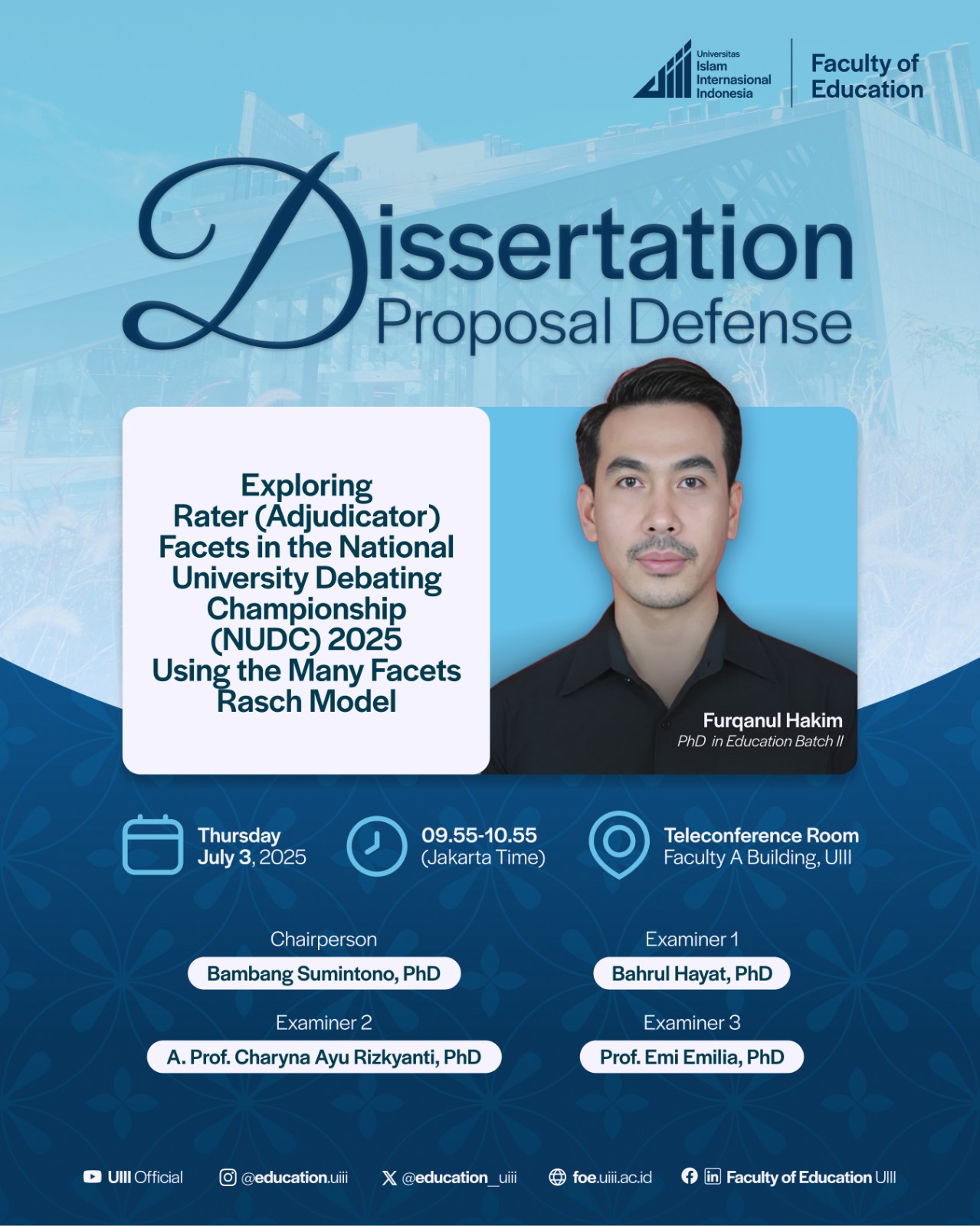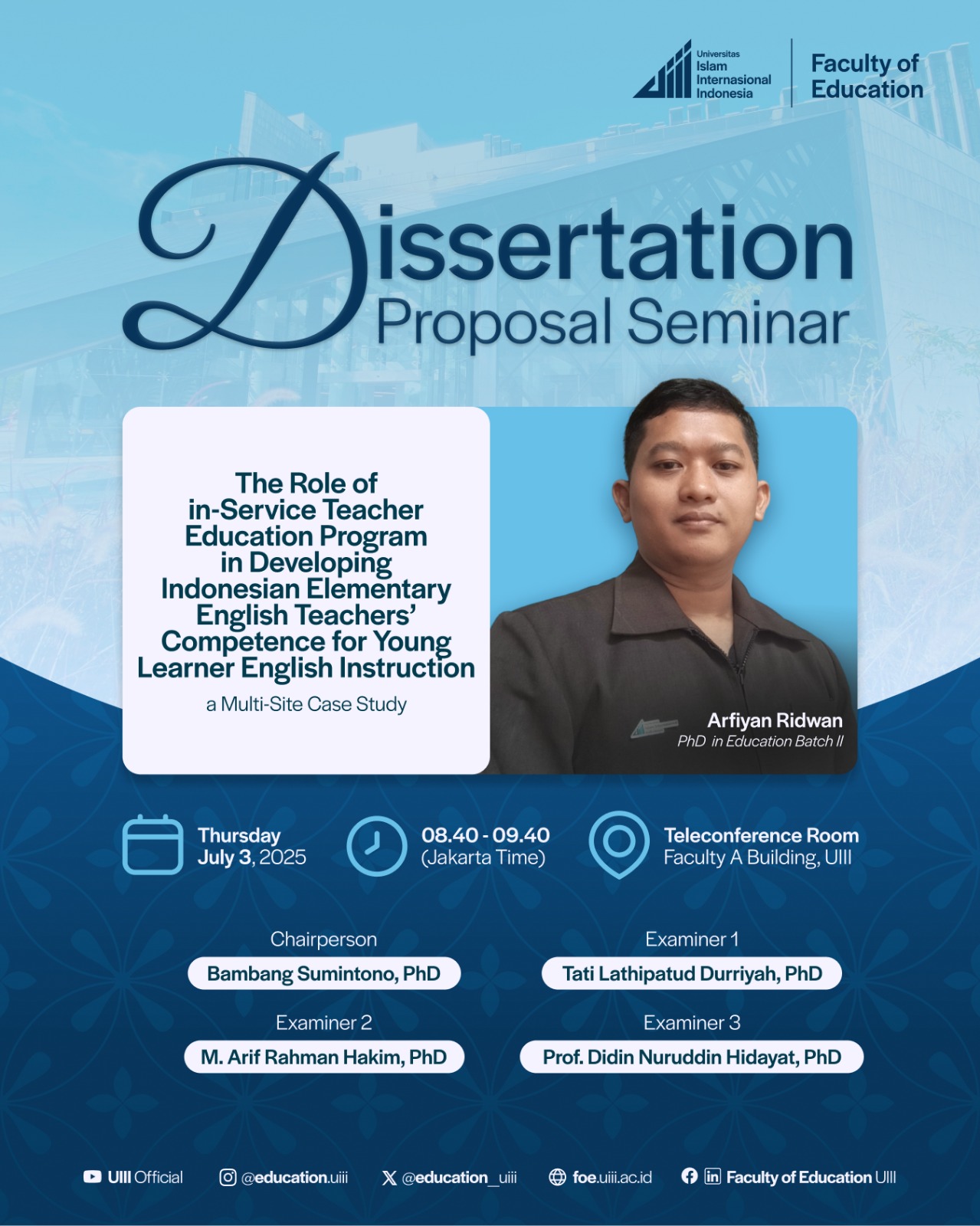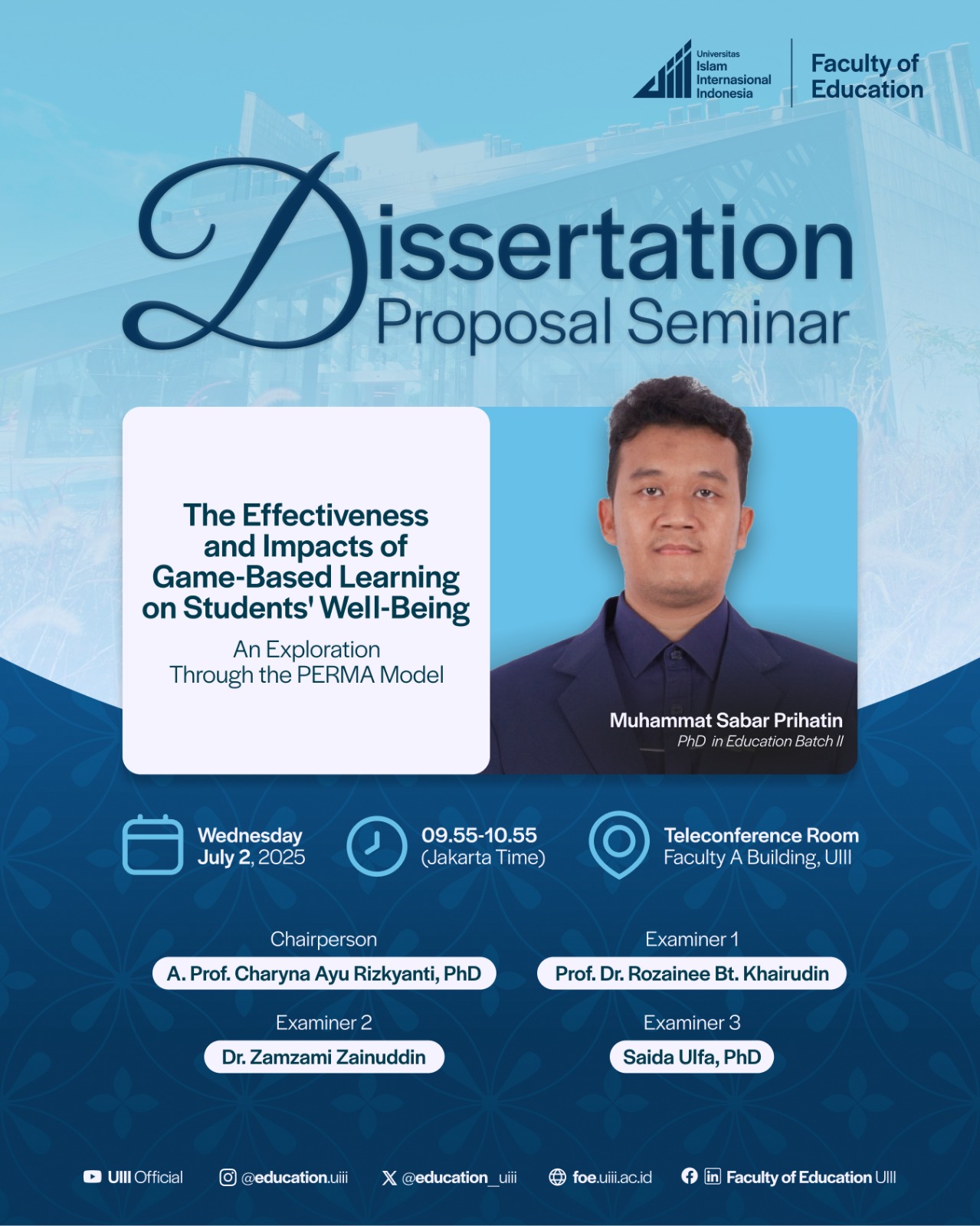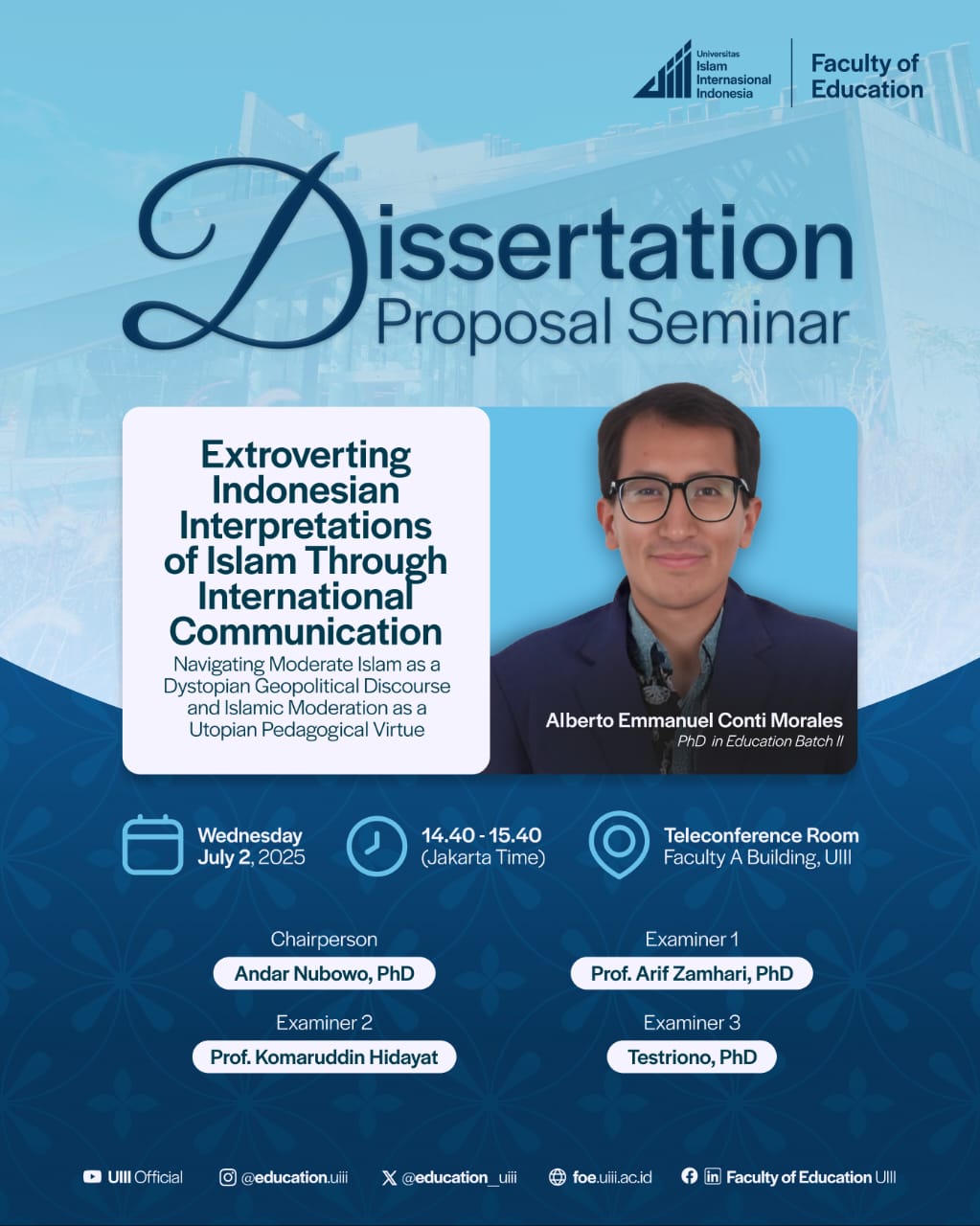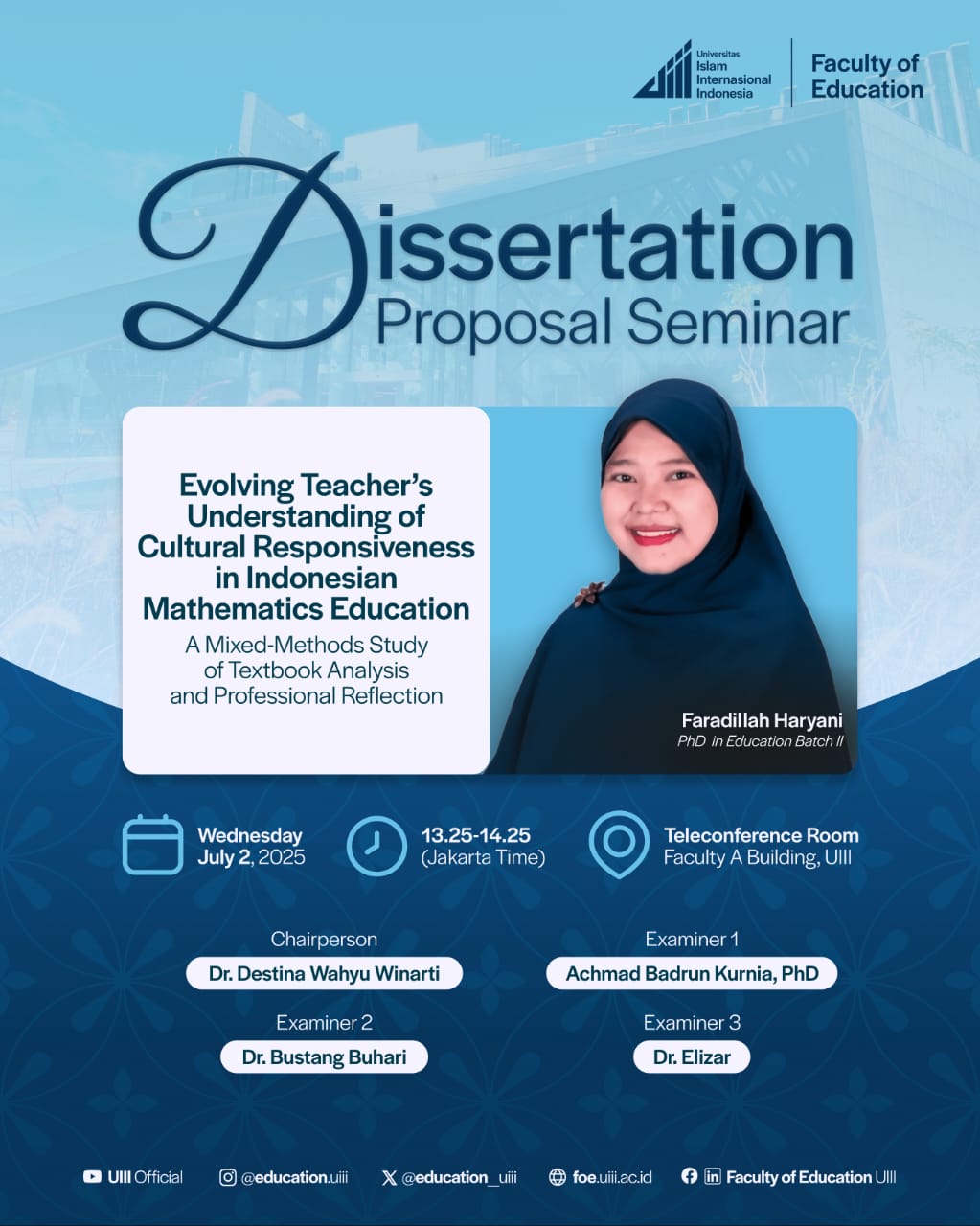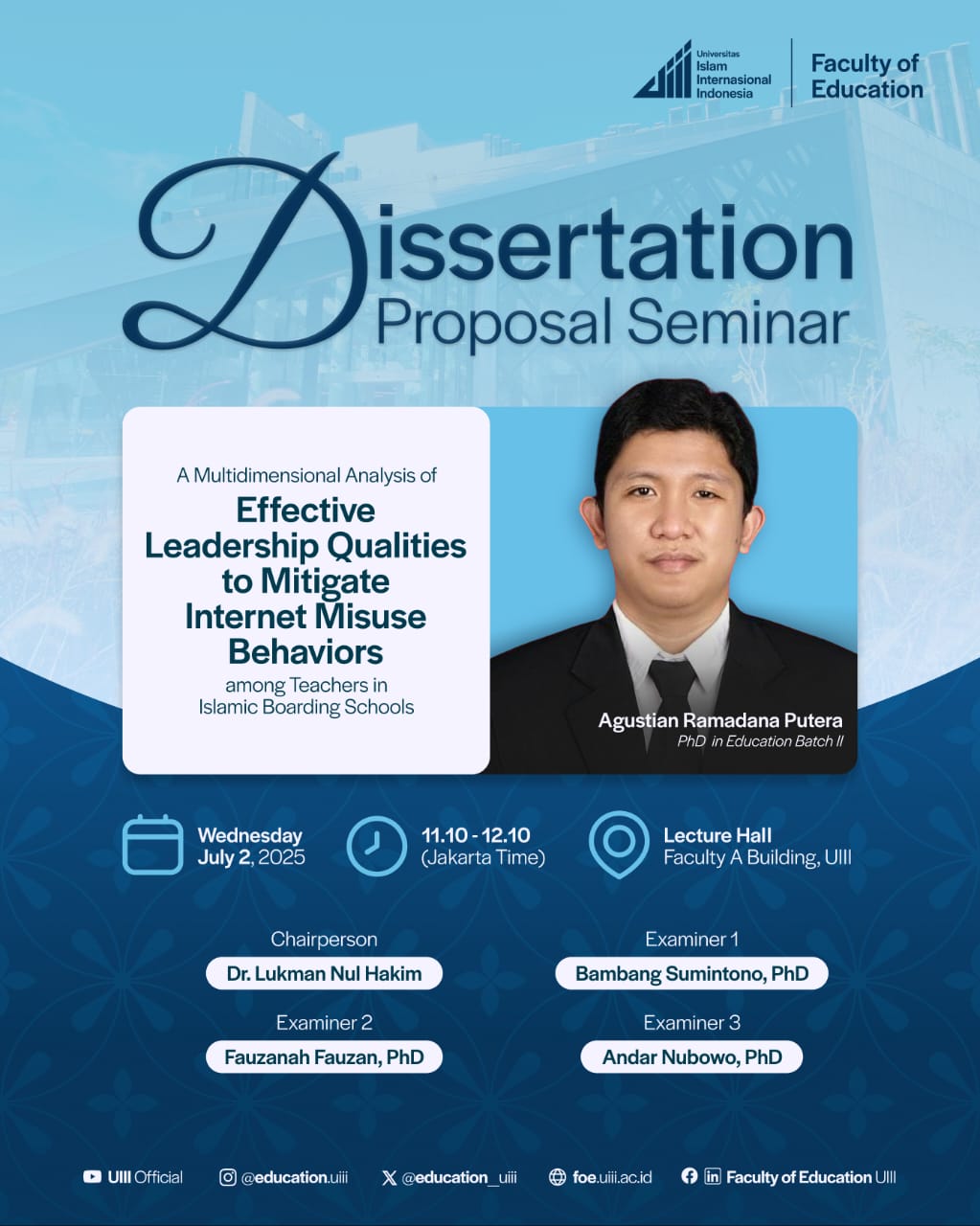Spatial Reasoning To Support Numeracy Learning
 Discover how spatial reasoning can enhance numeracy learning in our upcoming joint webinar series. This session brings together two experts sharing insights from diverse educational contexts.
Discover how spatial reasoning can enhance numeracy learning in our upcoming joint webinar series. This session brings together two experts sharing insights from diverse educational contexts.
✨ Presentation 1: Dr. Ririn Yuniasih, from the University of Melbourne, will present about "Intra-active play with space as a learning process in children’s games."
✨ Presentation 2: Dr. Destina Wahyu Winarti, from Universitas Islam Internasional Indonesia, will present about "Spatializing school mathematics to support numeracy learning."
Mark your calendar on:
?Day/Date: Tuesday, July 3, 2025
⏰Time: 14.30-15.30 (Jakarta Time) / 17.30-18.30 (Melbourne Time)
Registration: bit.ly/JointWebinarSeries3
E-Certificate is provided!

